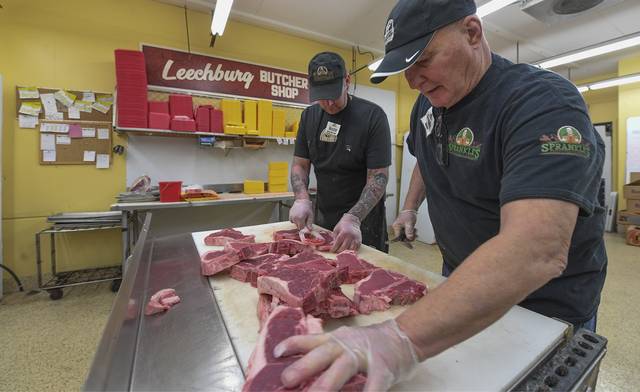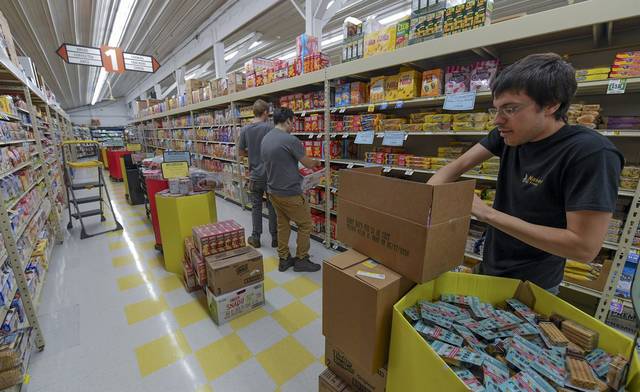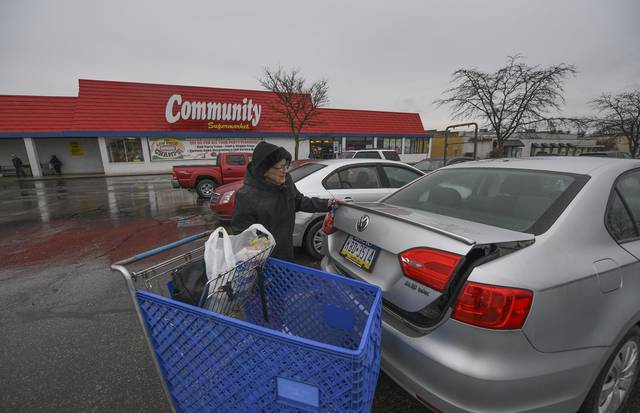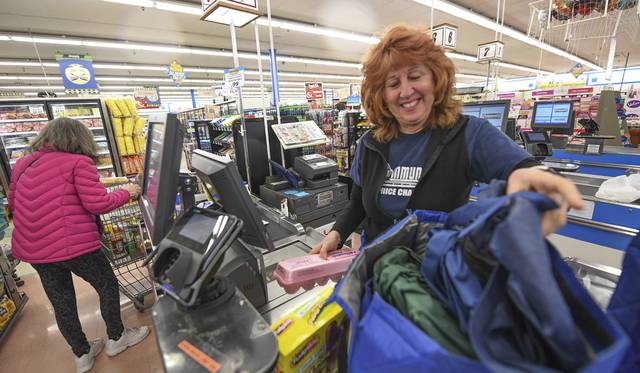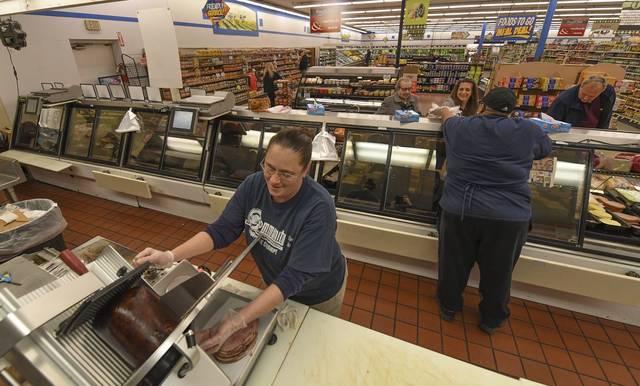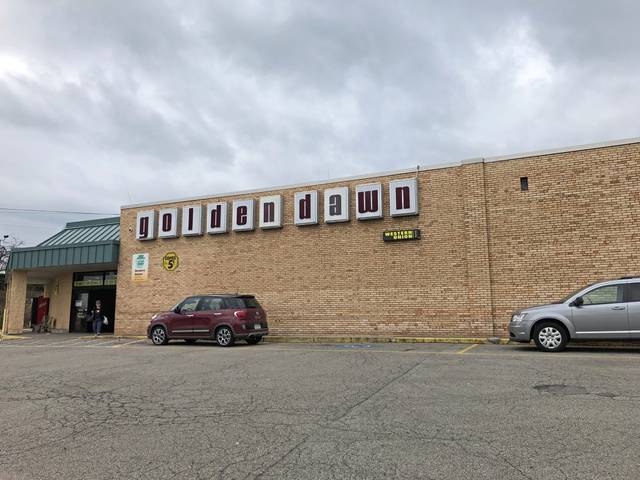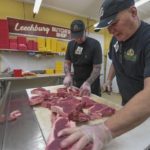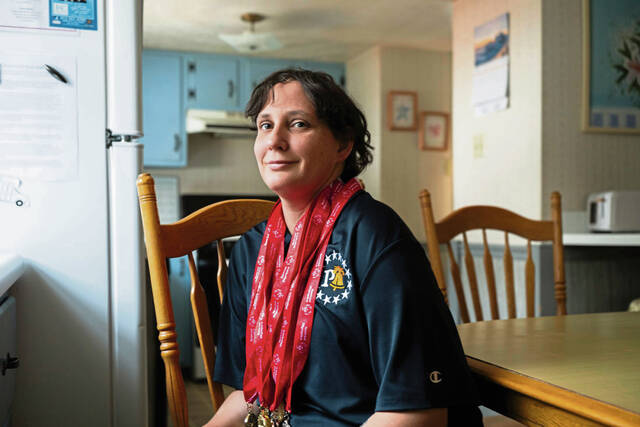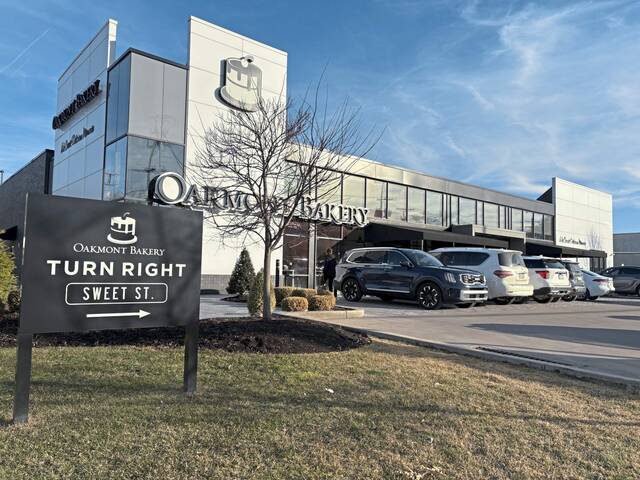On a quiet Thursday afternoon, Brandon Rainelli walks the aisles of Naser Foods. A customer approaches him to ask where he can find apples. A vendor meets him to sell homemade candies.
Rainelli engages with everybody. He knows most of their names, and they know his.
Rainelli has been manager at the Naser Food’s Oklahoma Borough location for four-and-a-half years.
“We are a small store, but we have a lot of regular customers,” Rainelli said. “Being a regional store, it’s a lot easier to connect with them. Everyone is always in motion at bigger stores.”
Being a regional store comes with a lot of difficulties, too.
The grocery retail market is changing, as nationwide chains expand their reach and offer amenities for fast-paced consumers — online ordering, curbside pick-up and home delivery, to name a few.
Stores are making a point to offer services in every aspect of the shopping experience.
Giant Eagle, a Pittsburgh-based regional chain, offers everything from a curbside pick-up to a fuel perks program to “Scan, Pay & Go” — yet another way for shoppers to expedite the checkout process. The chain does all this while still identifying as a local business, offering products from local vendors and partnering with Pittsburgh food banks and other nonprofits.
“We like to try to be a little bit ahead of our time,” said Jannah Jablonowski, a Giant Eagle spokeswoman. “We’re always evolving these digital solutions.”
Independent and regional grocers don’t typically have the capital or the client base to keep up.
But as the industry shifts to include more services like online ordering and delivering, small stores in the Alle-Kiski Valley are finding strength in community relationships, family reputation and specialty products.
Old-fashioned service
Bill Bishop, president of the grocery-consultant firm Brick Meets Click, said the grocery business is facing a number of challenges: including the efficiency and market saturation of Walmart and an increase in online shopping. These factors can make a critical difference in an industry with an extraordinary amount of fixed costs.
Bishop said a 2% or 3% shift in sales can end up hurting a store’s profits by 10% or 12%.
“If the grocers continue to move into online, they’ve got to find ways to do that profitably,” he said. “And at this point, that’s a struggle. That’s hard to do.”
If efficiency is where the national chains have an advantage, then the local stores are doing all they can to compete.
Chad Patterson, manager at Community Supermarket’s Lower Burrell location, said the atmosphere in the store is always “all hands on deck.” Managers, stock boys and owners are all trained to run the register. Managers will go behind the hot foods counter to help, or round up shopping carts in the parking lot.
Several stores are trying to compete by offering their own versions of home delivery, curbside pick-up and online ordering.
Golden Dawn, in New Kensington, has offered home delivery for years; and at the customer’s request, curbside pick-up is also available. Sprankle’s Neighborhood Market, a two-store chain in Leechburg and Kittanning, delivers groceries to 40 to 50 customers every Tuesday. Rainelli said Naser Foods is in the midst of implementing mobile coupons.
But for the most part, business is as usual at these independent grocers.
At Golden Dawn, manager Michael Moses is determined to keep things running “the old-fashioned way.” Deli meats are sliced per customer, butchers are cutting meat in-store, and the bakery is still creating everything from scratch. Moses said most of his customers are in an older demographic and show less interest in online shopping or mobile deals.
“We’ll just continue to do things the way we do them,” Moses said. “We’ll be the local grocery store that caters to the local community.”
While the grocery store market is changing, the customer base at independent stores in the Alle-Kiski Valley is staying pretty consistent. This is a comfort to stores that don’t have the capital to make large-scale changes, but it also makes it difficult to plan for the future.
“The challenge I think is not so much to keep people coming back — we’ve established a good customer base,” said Patterson, at Community Supermarket. “The challenge is getting new faces in here.”
Community relationships
To face that challenge, the stores try to set themselves apart with superior customer service — a friendly atmosphere and a commitment to the community draws more people in, store managers say.
Community Supermarket sends local police officers cookie trays around the winter holidays, supports borough and Alle-Kiski Valley sports programs and drama departments and fundraises for residents in need, Patterson said.
At Sprankle’s Neighborhood Market, community involvement at events, fundraisers and on social media is a critical part of the brand. The store has a Facebook page where it advertises products, deals and charity drives. Sprankle’s frequently hosts community events in the store: in January, for example, the store hosted a 24-hour broadcast fundraising for Armstrong Community Action.
Co-owner Ryan Sprankle said giving back to the community is one of the store’s core values, and he thinks customers are drawn to that.
“They want someone to reinvest in,” Sprankle said.
The relationships forged between stores and their customers, especially when those stores have a family reputation, can help a regional chain stick around, Bishop said. Customers are likely to keep shopping in places where their parents shopped, or where the cashier recognizes them and says ‘Hello.’
“At the end of the day, people have a strong, personal relationship with where they buy their food,” Bishop said.
Shoppers in the Alle-Kiski Valley tend to appreciate the extra, personalized care. Many said that they shop at a variety of grocery stores — including the big chains — but remain loyal to independent grocers for their sales and their customer service.
“They’re all pretty friendly, and if I need help, they’re good enough to help me,” said Pat Burchell, a Tarentum resident who was shopping recently at Golden Dawn in New Kensington.
Niche offerings
The owners of independent grocers are adamant that they can offer products that the big chains never will. Perishable foods — especially meat — consistently drive the reputations of several Alle-Kiski stores.
At Naser Foods, which has stores in Oklahoma Borough and Unity Township, Westmoreland County, deer hunters are able to bring in semi-butchered deer for the store to fully process and smoke. Naser also makes its own sausage, hamburger patties, beef sticks and other quality meats. Meat production at the store is central to the operation, owner Bill Naser said.
“You can buy green beans anywhere,” he said, “but you can only buy our kielbasa here.”
Several stores in the Alle-Kiski Valley operate butcher shops or put special focus on their deli options.
Moses said Golden Dawn is known for its meat offerings, especially hamburgers, which are made from beef that is ground in-store.
Sprankle said that his stores’ meats are cut fresh daily, and has “outstanding” pricing — something that helps them close the gap with Walmart, Aldi and Giant Eagle.
“That gets people’s attention,” he said. “We’re close enough or better than our competitors in those areas.”
Bishop said prepared foods are one area where regional grocery stores will always shine. It’s the convergence between the retail and restaurant businesses, and it’s what Amazon can’t consistently deliver on, he said.
Supermarkets like Sprankle’s, Golden Dawn and Naser Foods typically have a better reputation for quality food than larger chains, or even some restaurants.
Loyal customers appreciate the niche. Mary Ann Calandrella, of Avonmore, said she has been shopping at Naser Foods for around 30 years.
“I come here because they have really good meat and a lot of good sales,” Calandrella said.
A daily war
For most Alle-Kiski grocery store owners and managers, the focus was never really about the profits. They’re committed to the customers and the community that keeps them open. Rainelli, for instance, started working at Naser Foods when he was 16. He thought it would be a temporary job, but he stayed for 11 years. He said it was like working with his family.
In an industry that has changed so much from just a generation ago, it’s unclear which grocery stores will ultimately succeed. Bishop compared the competition to a horse race — increasingly fast-paced, and the front-runners are constantly shifting.
“It’s not really clear that anybody is going to be completely advantaged,” he said.
For the family-owned stores in the Alle-Kiski Valley, it can be a “daily war,” a constant battle to maintain profitability.
“There is a lot more competition and it makes our jobs as small retail managers difficult,” Patterson said. “But at the same time, I think it makes it rewarding that stores our size are still around.”


